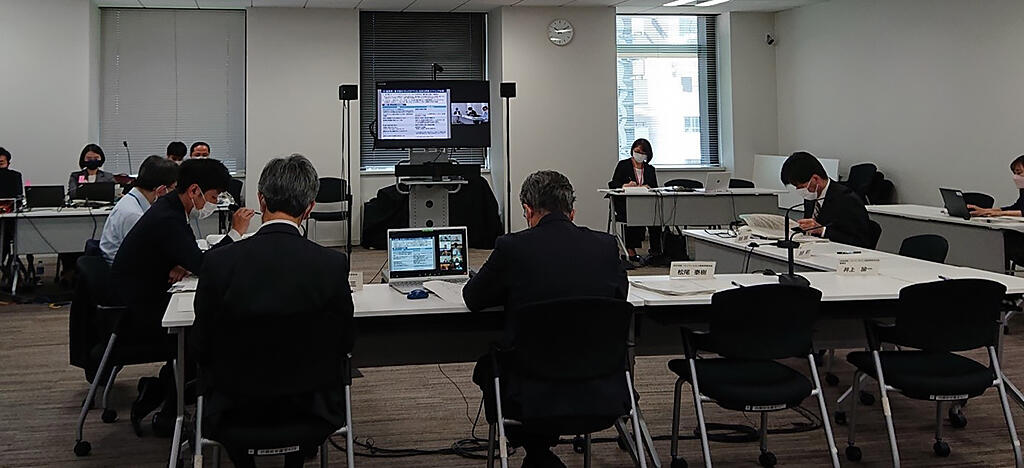In order to create a start-up ecosystem that can compete in the world, a goal has been set to strengthen functions of funds for growth, venture capitals (VCs) and universities. To support this, a report has been put together by an expert examination committee of the Council for Science, Technology and Innovation (CSTI). It will be officially approved at a plenary meeting of CSTI, which will then be incorporated in the Basic Policies and will be reflected in a budget request for FY2023.

Universities in Japan are treasure troves of new technologies derived from high-quality basic research (or deep-tech) and talented researchers. However, technologies that were born in Japan, such as quantum computers and 3D printers, have been practically used by overseas businesses to produce wealth and to lead social changes without being spotlighted and fully utilized in Japan. For the former, the principles were created by Tokyo Institute of Technology, while for the latter, a patent was filed by Nagoya Municipal Industrial Research Institute. Especially in the U.S. and Europe, deep-tech has socially been implemented by start-ups.
Likewise in Japan, investment into domestic venture capitals has shown a steady increase in the past decade, with an increased number of start-ups and unicorns (new businesses whose corporate value is over and above one billion dollars) being founded. Along with it is a trend that many talented human resources flow into start-ups. On the other hand, start-up ecosystems overseas are growing much faster than that of Japan, such that the gap is widening.
The report describes the current situation and what should be done in the future, from five viewpoints, including reinforcement of funds for growth, strengthening functions of VCs, thorough assistance to entrepreneurs, functional enhancement of cities and universities as cores of the start-up ecosystem and creating markets through government procurement.
With the aim of decoupling investments to VCs in Japan in five years, the report intends to facilitate investment to VCs whose job is to supply funds appropriately to domestic start-ups, using public money including pension funds, and to revise special tax incentives or the angel tax system.
As to strengthening VCs, the report recommends promoting a framework for facilitating Limited Partner investments (investments made as investors) by public organizations to overseas VCs. While doing so, investment to Japanese start-ups by overseas VCs will be facilitated, through which international activities by Japanese start-ups will be promoted and the expansion of their global network will be strengthened. In addition to this, risk money derived from public funds will be significantly reinforced, as a stimulus to later stage companies.
In order to assist entrepreneurs, the employee stock option system (SO), which is unique to Japan, will be revised. The SO system refers to a system that employees are given the right to purchase their company shares at a pre-determined price when they are hired. The aim of this system is to acquire highly qualified human resources. In the U.S., an employee may exercise his/her stock option one year after employment. On the other hand, in the case of Japan, there are some problems. Firstly, SO cannot be pooled (i.e. to keep stocks newly issued by the company to allocate SO to employees when hiring them). Secondly, trust-type stock options, unique to Japan, require a high initial cost and ventures are not accepted by trust banks. There are also some issues pointed out in the SO tax system. The report also states that start-up visas will be introduced, which will be issued to entrepreneurs and start-ups that are being invested in by VCs and others recognized by the Government of Japan.
In regards to functional reinforcement of universities, the report describes the provision of quality entrepreneurship education and a chance to receive assistance to start their own business by mentors and accelerators, to all students who wish to take them. As well as this, a foundation for creating start-ups from university will be constructed through forming world-class research hubs, by inviting top level researchers in and out of Japan utilizing the 10 trillion-yen university fund. An environment for the creation of start-ups will be prepared that is able to contribute to constructing a hub for joint-creation through government-academia-industrial collaboration and to solving regional and social issues, by strengthening the comprehensive package for promotion of regional core and distinct research universities. Investments to local start-ups will be expanded by increasing investments into local funds by regional banks. In addition, the following items will be examined and resolved at an early stage: removing restrictions for using shares and share acquisition rights that are provided in consideration for intellectual properties, revising rules for jointly held patents and strengthening support for applications to international patent rights.
As for government procurement, the Japanese Small Business Innovation Research (SBIR) will be upgraded to significantly enlarge the scope and size of designated subsidies, and to drastically improve them for start-ups.
As the ecosystem cannot be built in a day, a five-year plan will be formed, and the commanding function assigned to the Cabinet Office or the Cabinet Secretariat to enable a long-term follow-up.
To facilitate this, the establishment of internationally accepted rules is required. The report shows the directions of various actions, without detailed explanations as to what, by when and how they are to be realized. The five-year plan, to be formed by the Kishida Administration, is likely to indicate the details, but the point is how detailed it will be. Whether the five-year plan is successful or not will depend on if world-class rules can be designed without relying on unique-to-Japan rules that are seen as weird from an international point of view.
This article has been translated by JST with permission from The Science News Ltd.(https://sci-news.co.jp/). Unauthorized reproduction of the article and photographs is prohibited.




